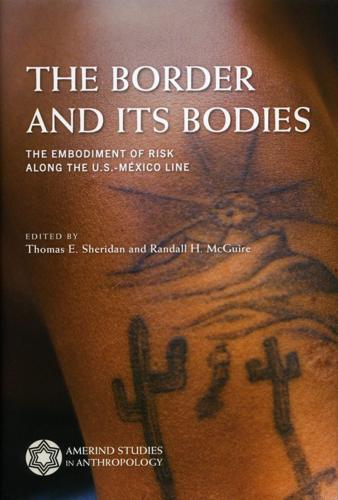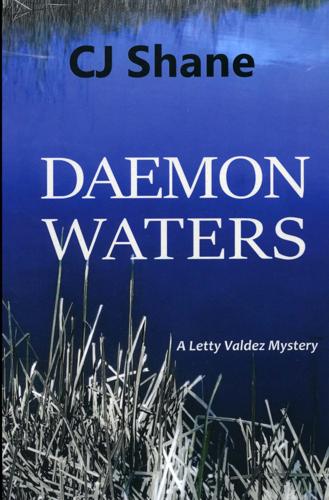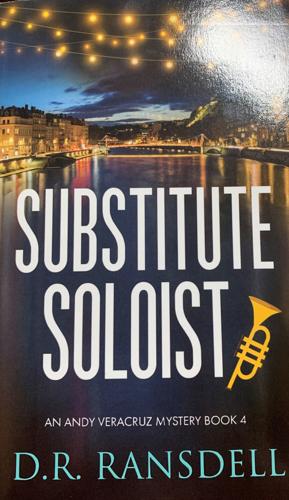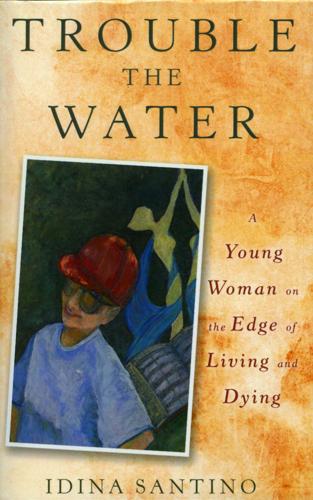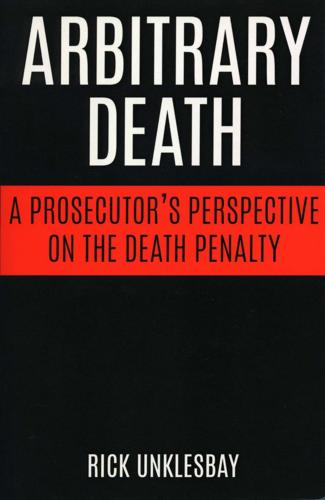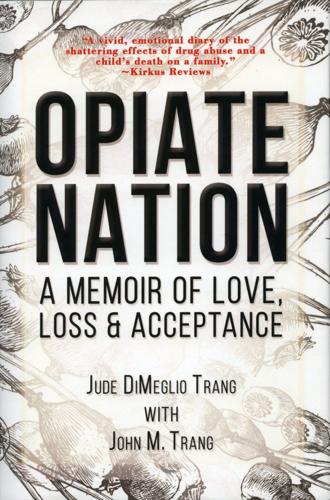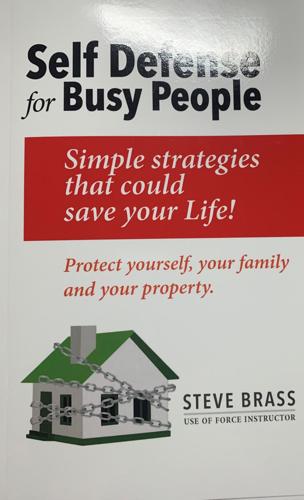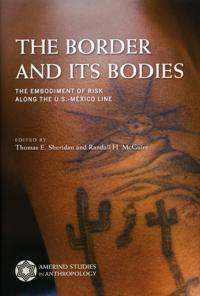“The Border and Its Bodies: The Embodiment of Risk along the U.S.-México Line” edited by Thomas E. Sheridan and Randall H. McGuire.
University of Arizona Press; Amerind Studies in Anthropology. $60.
“The Border and Its Bodies” grew out of a 2016 seminar of archaeologists and cultural and biological anthropologists who examined the risks and trauma implicit in migrants fleeing Central America and Mexico for the U.S. Focusing on border crossing west of El Paso (thus, often desert crossings), it posits that migrants — living or dead — literally embody the trauma they experience in their migration. From arduous physical challenges (violence at home, encountering the wall, riding La Bestia, robbery, rape, incarceration), through the humane protocols of the Pima County Office of the Medical Examiner to identify and repatriate remains (former chief examiner Bruce Parks: “We treat people like we would want our family members to be treated.”); to long-term physical and emotional damage, this book explores bodily manifestations of the “othering” of Central Americans and impoverished Mexicans. It’s a scholarly text, but the 13 contributors humanize it with situations and individuals they have personally encountered — often in a social-justice arena.
— Christine Wald-Hopkins
“Daemon Waters” by C.J. Shane.
Rope’s End Publishing. $22.99 hardcover, $12.99 paperback, $4.99 e-book.
There’s a reason P.I. Letty Valdez wants nothing to do with romance: People she loves tend to die. Plus, her own life’s never secure. As a medic in Iraq, in a convoy following her soldier boyfriend, she saw his truck pulverized. She was shot running to the scene. At home, plagued by flashbacks, aware of the dangers her private investigation gig poses, she won’t risk letting anyone else get close to her … however handsome, compassionate, and charming he — as the new doc in town — might be. In C.J. Shane’s third Letty Valdez mystery, Letty’s tasked with finding two U.S. Army vets, tracking down dirt on a philandering husband and investigating the death of an environmentalist. Turns out it’s easier to locate missing veterans than to reunite them with their families. With that, along with murders of the husband and his business partner, and a newfound connection with the environmentalist, Letty’s investigation takes a risky turn. Meanwhile, her personal life becomes complicated by the subtle pressure of ER doctor Dan Innis to hang out. When she finally relents, it seems her worst fears might be realized. Author Shane, also a Tucson visual artist, already has the next Letty Valdez mystery in the hopper.
— Christine Wald-Hopkins
“Substitute Soloist” by D.R. Ransdell.
Aakenbaaken & Kent. $16.99.
Musicians tend to be lovers, not fighters (they’ve got those hands to protect), but D.R. Ransdell has managed to create a credible mystery series starring a violinist. In this fourth Andy Veracruz mystery, Andy, having lost his good L.A. mariachi gig after some unpleasantness with his boss’s wife, has followed a girlfriend to Tucson. He’d rather play mariachi, but the local bands are full up with lead violinists, so he takes a spot in the Tucson Symphony. When the brilliant but fiery concert mistress flees the stage mid-performance, Andy steps up to cover the violin solo. When a man’s body is then discovered backstage, and the concert mistress has disappeared, Andy is drafted by the orchestra’s charismatic conductor to track her down. The search will take them chasing through Europe and Mexico. A mariachi and community orchestra violinist herself, Ransdell has created a convincing, appealing character in Andy Veracruz. She weaves in informed musical detail and palpable performance tension that appeal to both other musicians (this reviewer) and non-musicians (this reviewer’s reading partner). And Tucsonans will enjoy the nods to locals.
— Christine Wald-Hopkins
“Trouble the Water: A Young Woman on the Edge of Living and Dying” by Idina Santino.
Archway Publishing. $34.99 paperback; $3.99 e-book.
“This narrative,” writes Tucson transplant Idina Santino, “is my attempt to honor my daughter and to fulfill her request to write her story.” She succeeds at both admirably. At age 12, piano- and viola-playing, ice skating, honor student Jada Petersen tended to ignore falls, fevers, bruising, and fatigue. Until she could no longer. It was 1981, and when she learned she had acute lymphoblastic leukemia, the diagnosis was no longer a sentence of imminent death, but fighting it promised painful and debilitating medical treatment. “Trouble the Water” chronicles eight years of Jada’s fight. At a hefty 652 pages, the book was no modest undertaking, but it’s compelling. Drawing from her journals and Jada’s writing, Santino narrates and details the physical and emotional roller coaster of Jada’s living with leukemia. As much a personal memoir as her daughter’s story, “Trouble the Water” reveals a troubled family as well: a broken marriage; a neglected second child. Jada is an uncooperative patient, and her mother seems to enable her behavior. In many ways, the book indicts medical protocol. But in the end, Jada is able to assert control over her own life. That’s “her story.” And it’s worth telling.
— Christine Wald-Hopkins
“Arbitrary Death: A Prosecutor’s Perspective on the Death Penalty” by Rick Unklesbay.
Wheatmark, Inc. $12.95, $9.99 Kindle.
The United States is the last Western nation still employing the death penalty in its criminal-justice system, and there are few more controversial subjects. Rick Unklesbay, a former prosecutor with the Pima County Attorney’s Office since 1981, weighs in on the debate with this new book, and it would be hard to find a better-informed or more thoughtful opinion about capital punishment. The author has tried more than 100 first-degree murder cases, 20 of them involving the death penalty. His thinking about the death penalty has evolved, he says, and he now concludes that capital punishment is a flawed and arbitrary system. Death sentences (the pursuit of which are ultimately based on a prosecutor’s gut instinct) go through literally decades of appeals, during which time standards may change, juries may overturn decisions, survivors are tortured with repeated retellings of the crime, and condemned killers can be freed on technicalities, while taxpayers are on the hook for millions of dollars. To illustrate, Unklesbay provides the details of 11 horrific high-profile cases that he prosecuted, including the bombing murder of investor Gary Triano and the infamous Pizza Hut murders — the “worst of the worst” in prosecutorial parlance, deserving of the death penalty — and he parses the unintended consequences of the verdicts. Unklesbay, who now reviews cases of possible injustice as chair of the Pima County Attorney’s Conviction Integrity Unit, has written an eye-opening and insightful book about capital prosecution that should be essential reading, regardless of which side of the issue you find yourself. Proceeds from the book’s sales go to Homicide Survivors Inc., a nonprofit that assists surviving families.
— Helene Woodhams
“Opiate Nation: A Memoir of Love, Loss & Acceptance” by Jude DiMeglio Trang with John M. Trang.
Published by the author. $29.99.
John Leif, known to family and friends as JL, was smart, charismatic, fiercely loyal — and addicted to opioids. When he died of a heroin overdose at the age of 25, his anguished parents sought some relief by keeping a journal in which they wrote letters to their late son. Holding nothing back, they shared their confusion, their profound despair, and finally their hesitant steps toward acceptance. Their journal provides the framework for Jude DiMeglio Trang’s memoir, a book as timely as it is heartbreaking. Trang begins with the horrifying discovery that JL, at age 15, was using black tar heroin, obtainable in his high school in their affluent section of Tucson. The ensuing years saw her son in and out of rehab in an endless cycle of sobriety and relapse while the family endured a decade of false starts and dashed hopes. Information about opioid addiction was scant (even the high school, aware of the problem, kept parents in the dark), and luck was in short supply — two of JL’s relapses coincided with medical procedures that put him back on prescribed painkillers, and during one stay in a sober residential facility, he secured drugs from the resident manager. Trang bares her soul in this moving book, explaining how she and her husband worked through the stages of grief, but more importantly, she shares what, in trying to make sense of her beloved son’s death, she discovered about opioid addiction. From brain science, genetics and inherited family dysfunction to the international drug trade, the staggering cost of treatment and the complicity of Big Pharma, Trang offers an honest and clear-eyed view of a public health crisis that became a family tragedy.
— Helene Woodhams
“Self Defense for Busy People: Simple Strategies that Could Save Your Life” by Steve D Brass.
Independently Published. $16.99, $8.99 Kindle.
Most of us wouldn’t dream of going without health or life insurance — why risk being unprepared? But, posits author Steve Brass, we are careless about personal safety and take unnecessary risks daily. It’s easy to be lulled into a false sense of security, he says, but living in a gated community or knowing karate is unlikely to provide an adequate defense against an assailant. With this handy guide, Brass, a Tucson-based certified use-of-force instructor and personal-safety expert, illustrates behaviors that endanger us and offers sensible strategies for avoiding all sorts of chaos, from attacks and muggings to burglaries and identity theft. Ditch your handbag or wallet, he advises, and don’t carry more than you need— preferably an ID and one bank card — tucked in a front (never a back) pocket, or in a belt worn beneath your clothing. When gassing up the car, keep the passenger door locked and your back to the vehicle so you can monitor your surroundings. He divides his down-to-earth advice into sections focused on awareness skills, personal defense in the home and car, at work, and while traveling, and concludes with recommendations for fighting back against a variety of assaults; he also addresses the safety implications of gun ownership. In all, Steve Brass offers a well-organized, common-sense approach to personal safety that’s well worth reading.
— Helene Woodhams


